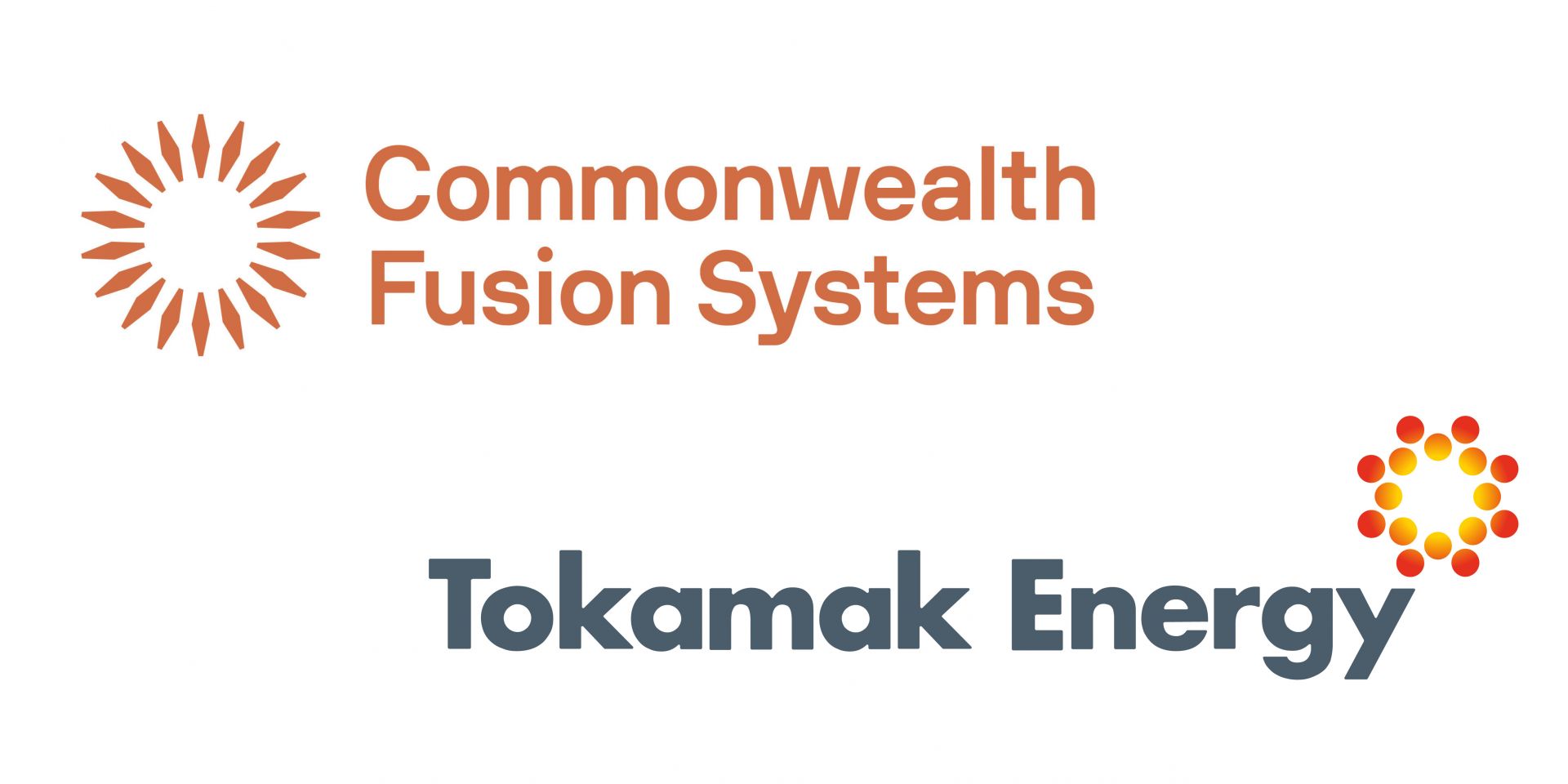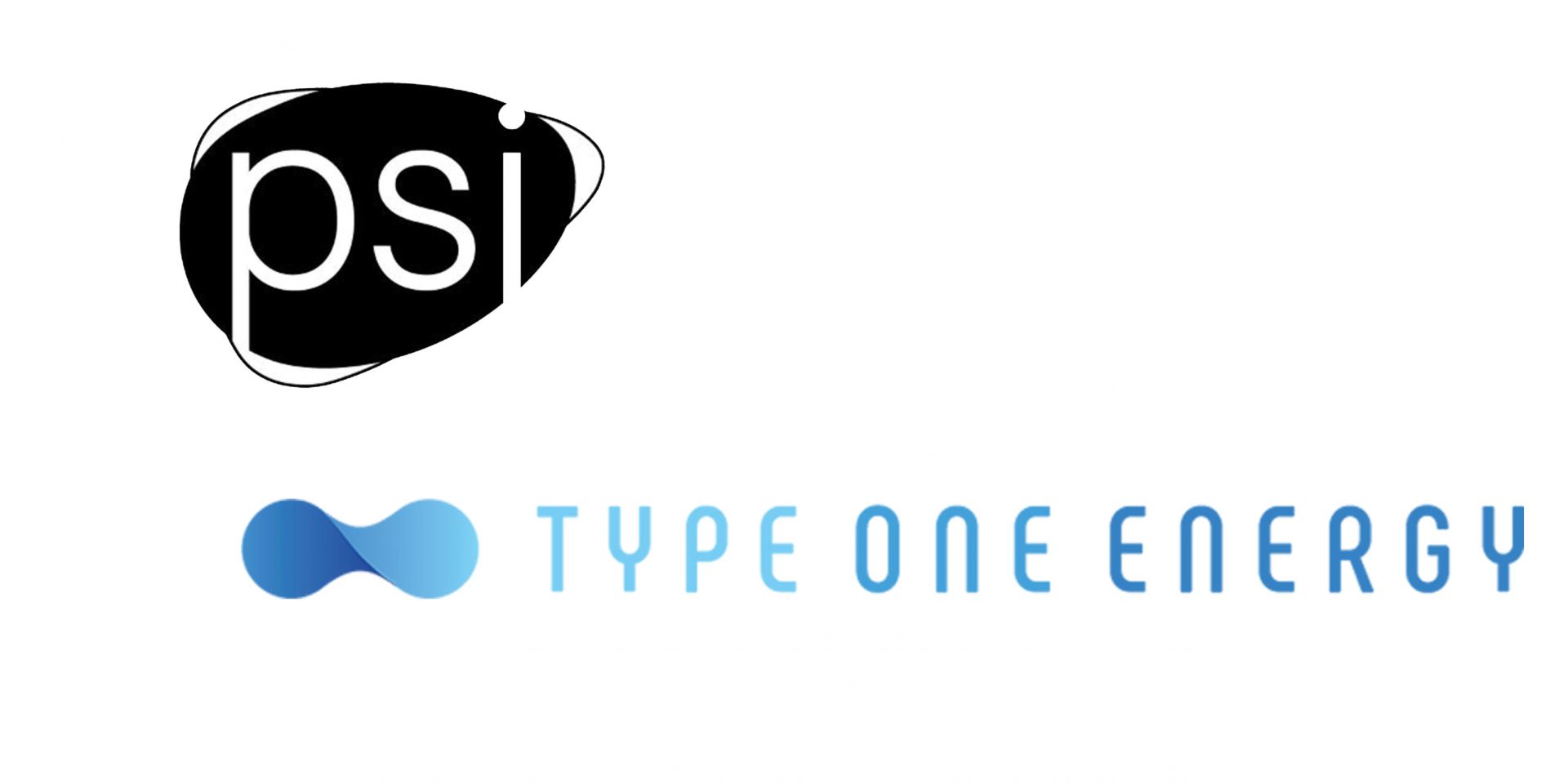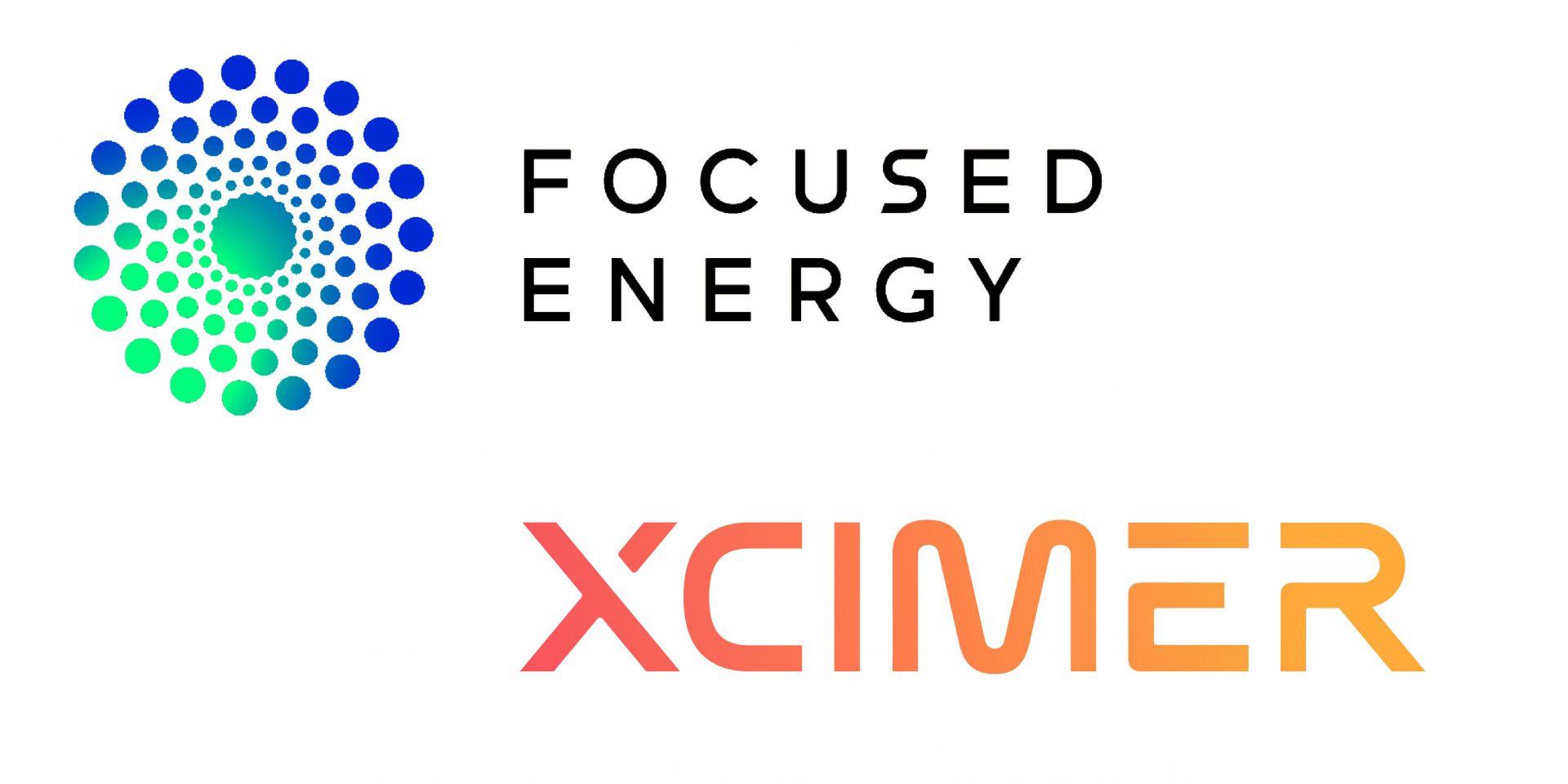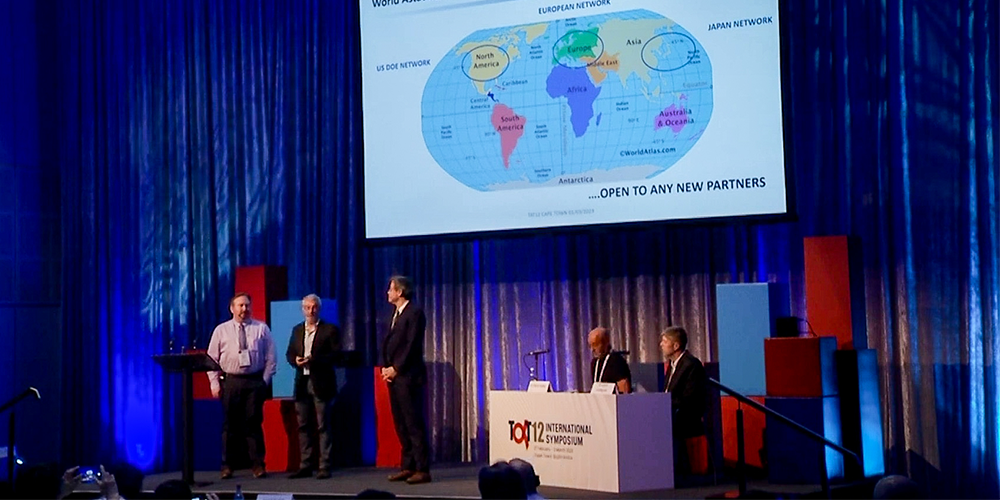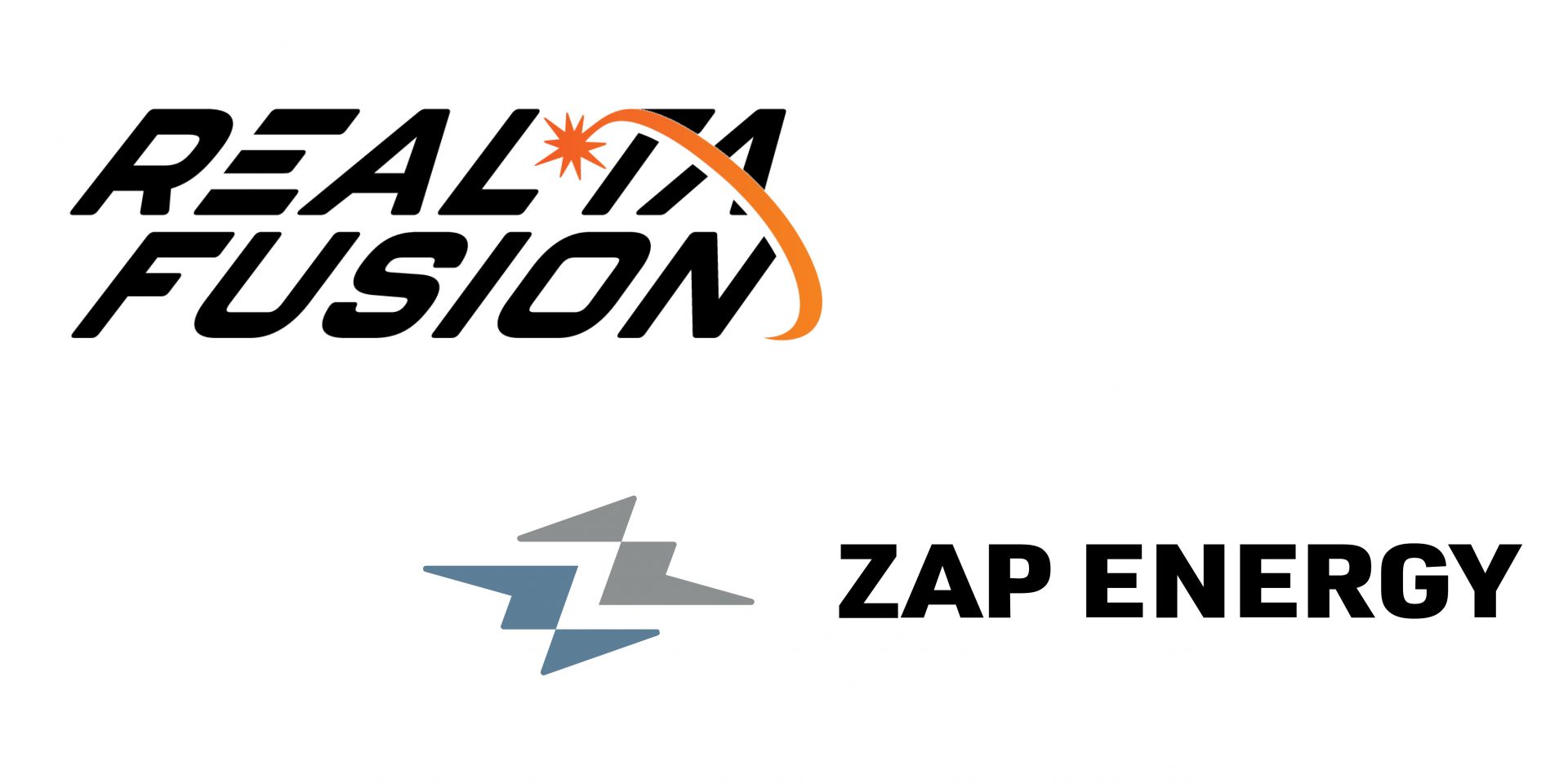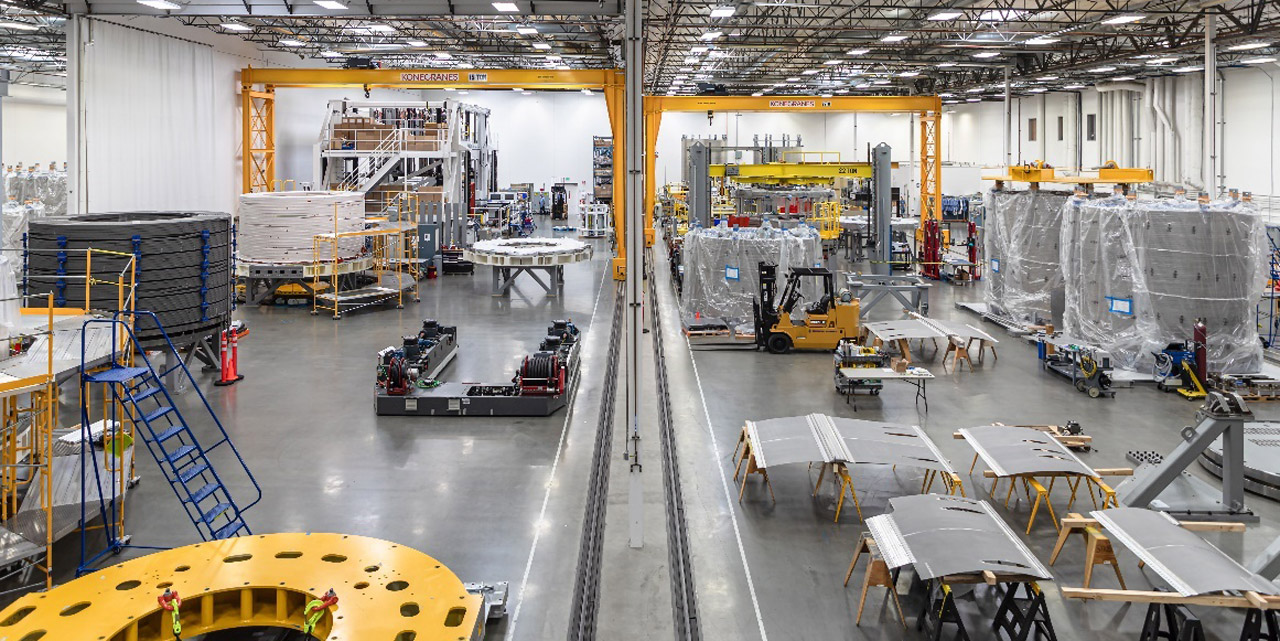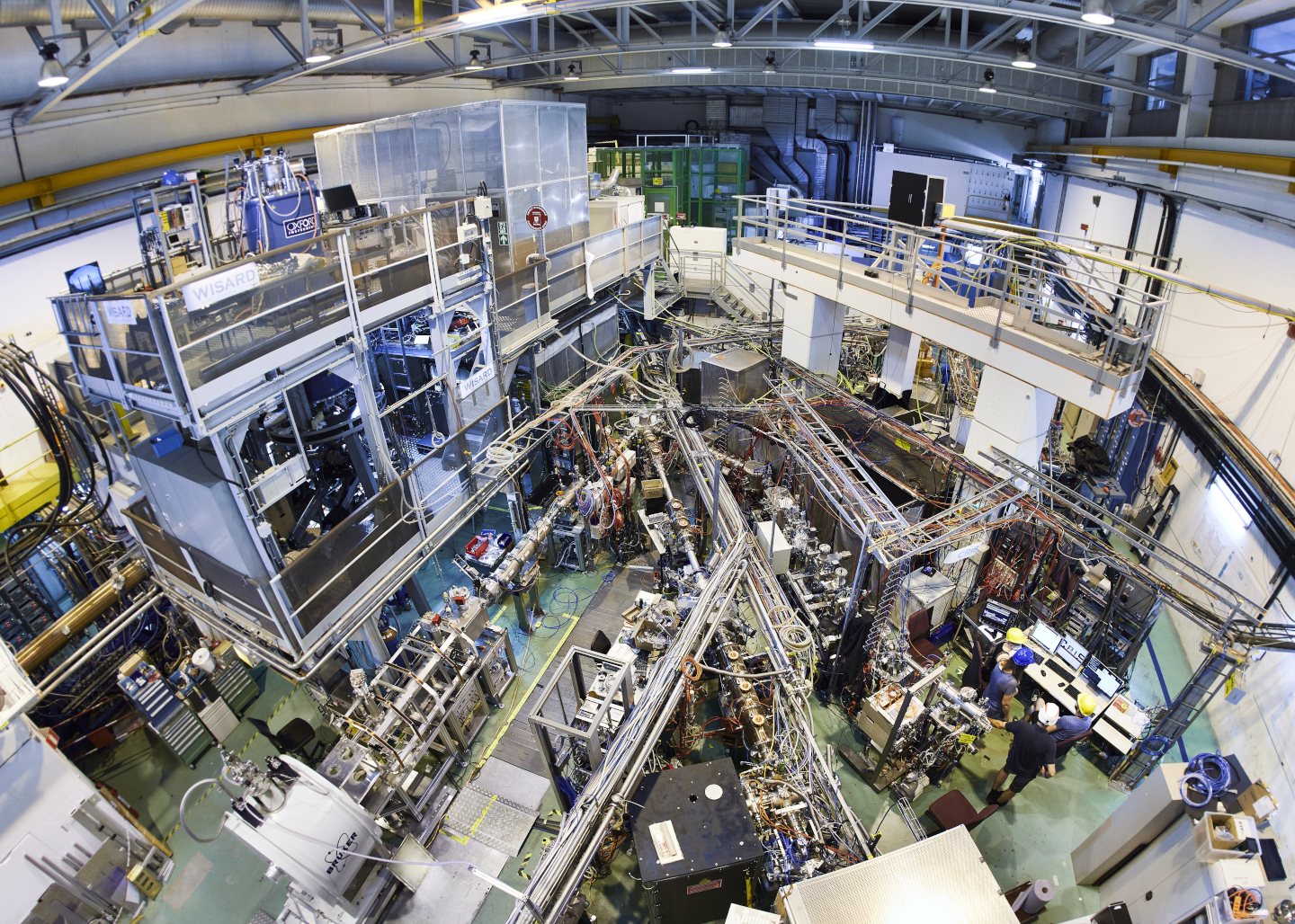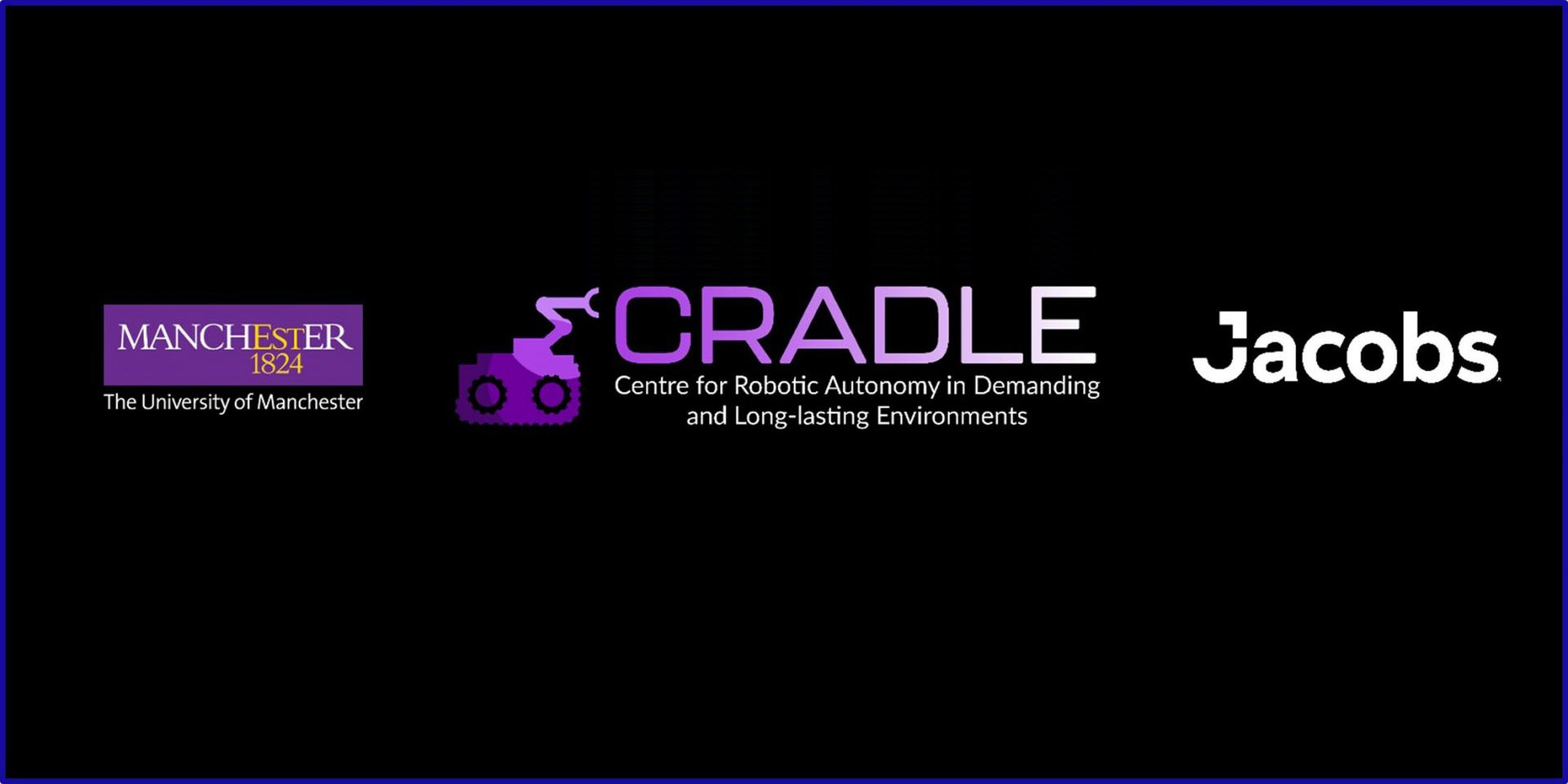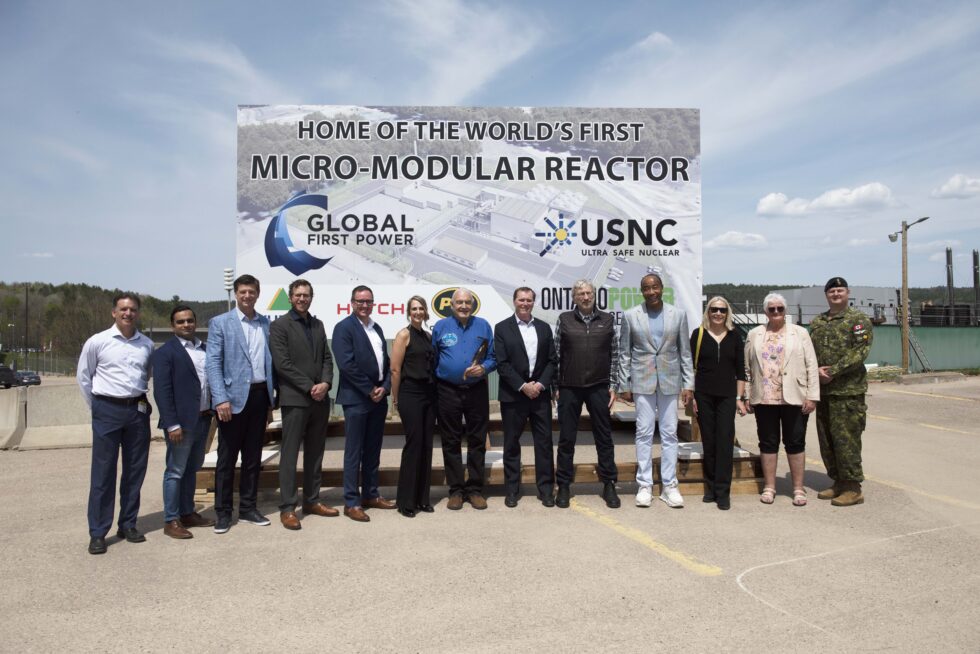SHINE Technologies founder and CEO Greg Piefer shows the hot cell banks that will be used to produce Lu-177. (Image: SHINE)
Fusion tech company SHINE Technologies announced that it is opening the largest facility in North America dedicated to the production of non-carrier-added lutetium-177, a medical isotope used in targeted cancer therapies.
Representatives from the U.S., EU, and Japan announce the WAC at the 12th International Symposium for Targeted Alpha Therapy. (Photo: NIDC)
The World Astatine Community (WAC) was formed earlier this year during the 12th International Symposium for Targeted Alpha Therapy by representatives from the United States, Japan, and the European Union to share astatine production technology and advance science and health care. The National Isotope Development Center (NIDC), which is managed by the Department of Energy’s Isotope Program (DOE-IP), announced the news on June 15 and explained how the United States plans to help expand the global supply of astatine-211.
(Photo: Nielander/WikiCommons)
Westinghouse Electric Company says its eVinci microreactor technology is “100 percent factory built and assembled before it is shipped in a container to any location.” And “any location” is not restricted to planet Earth, given the company’s goal of sending a scaled-down version of eVinci to the lunar surface or on a mission to provide power in other space applications.
Announcing the funding for commercial fusion energy development were Asmeret Asefaw Berhe (top left), director of the DOE-OS; Jennifer Granholm, secretary of energy (top right); and Arati Prabhakar (bottom), director of the White House Office of Science and Technology Policy and science advisor to the president.
From a crowded field of would-be fusioneers, the Department of Energy has selected eight companies for the public-private Milestone-Based Fusion Development Program to develop fusion pilot plant designs and resolve related scientific and technological challenges within five to 10 years. The DOE announced awards totaling $46 million for an initial 18 months of work on May 31.
GA’s Magnet Technologies Center. (Photo: GA)
General Atomics (GA) and Tokamak Energy Ltd. are each independently developing magnetic confinement fusion power plant concepts that would use a tokamak and high-temperature superconducting (HTS) magnets to confine and shape a plasma heated to over 100 million degrees Celsius. On May 30, they announced a memorandum of understanding to collaborate on HTS magnet technology for fusion energy and other applications.
The ISOLDE facility. (Photo: CERN)
Today’s atomic clocks are exceptional timepieces that won’t lose or gain a second in 30 billion years. But if you’re looking for even more precision, you’ll be glad to learn that physicists at CERN’s ISOLDE nuclear physics facility have observed the decay of thorium-229 nuclei trapped in a crystalline structure and confirmed the potential for a nuclear clock. CERN announced the news on May 24.
INL prepares to ship PCAT by truck to Pennsylvania for testing. (Photo: INL)
An electric-powered prototype of MARVEL, the tiny microreactor designed and planned for operation inside the Transient Reactor Test (TREAT) facility at Idaho National Laboratory, has successfully been installed at a manufacturing facility in Pennsylvania ahead of a testing program that could begin as early as July, the Department of Energy announced on May 22.
Rendering of a radioisotope-powered satellite. (Image: Zeno Power Systems)
Zeno Power Systems was awarded a $30 million contract to build a radioisotope-powered satellite for the U.S. Air Force by 2025. According to a SpaceNews article announcing the development and quoting company cofounder and chief executive officer Tyler Bernstein, the four-year contract is a “strategic funding increase” (STRATFI) agreement that provides $15 million in government funds, matched by $15 million from private investors.
Local officials, industry representatives, and others joined leaders from AECL, CNL, and GFP to mark the site of Canada’s first microreactor. (Photo: AECL)
